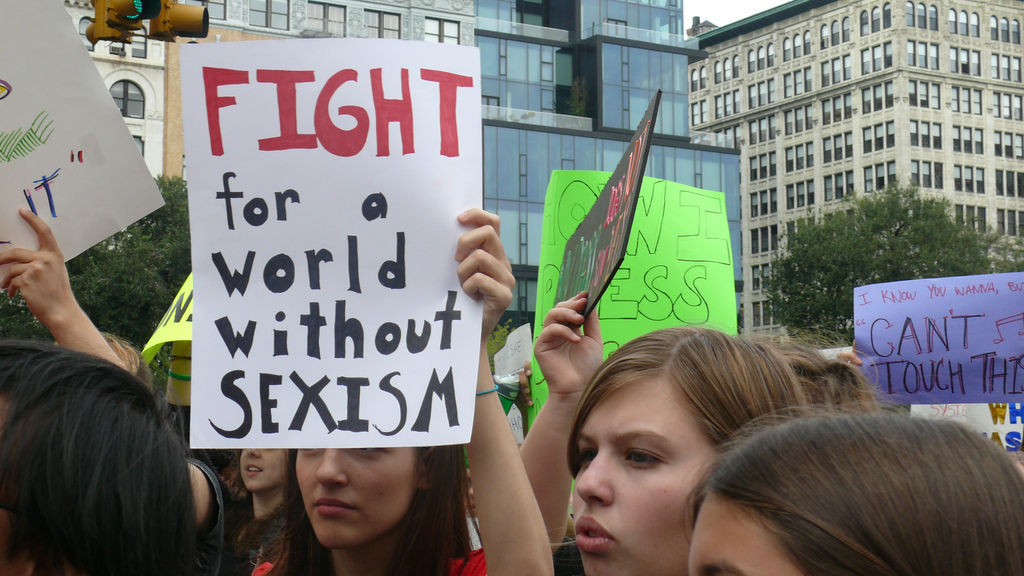#MenAreTrash is a social media movement that gained traction in South Africa. It draws attention to the systematic way in which men are taught to be trashy. But we need to be careful that #menaretrash does not become another “boys will be boys”. To simply concede that men are trash is not enough, says Jordan King.
As a society, we have allowed men to define their own genders with characteristics of violence, disregard for consent, and other fun things that come wrapped up in the colourful party pack of toxic masculinity. We’ve allowed these qualities to become acceptable and even praised. We’ve even developed a little catch phrase that casually exempts men from being held accountable for this behaviour simply because they are men: “boys will be boys”.
The lack of specification that not all men are trash is intentional. The hashtag is designed to prevent any man from abdicating responsibility for the trashiness women are forced to experience every day. Because even though a “non-trashy” man may not rape, undermine, or abuse women (apparently this is meant to earn a cookie), he still benefits from the system that allows other men to do so. It is systematic.
But the way we use #MenAreTrash is evolving away from what it began as. I’ve noticed the trend where a male friend would apologise for trashy behaviour with a declaration of “Men are trash.” I would instantly appreciate this insight into his own behaviour, bask in the knowledge that I was right, accept his apology and we’d move on. If he did it again, or he did something equally trashy, we’d simply just repeat the routine.
My Twitter feed is often flooded with retweets of horrific news stories about rape or domestic violence or women not being allowed to do certain things or Trump’s policies – stories that would almost always mention how the men responsible for these things were able to get away with them. These retweets would be hashtagged #MenAreTrash.
Male friends tell me stories about things their friends have done to women and then deliver a well-rehearsed rant about how trashy men are. But conceding that men are trash is not enough. It is a good first step to understanding the systematic way in which we need to unlearn behaviours, but it cannot end there. “Boys will be boys” grants men the ability to do as they please and to have their behaviour acquitted for as just a virtue of their “boyness”.
#MenAreTrash is in danger of granting men the ability to do as they please and to have their behaviour acquitted as just a virtue of their “trashines”. More dangerously however, #MenAreTrash acquittals raise no red flags and these men are put in the “safe zones” for women, trans people, and non-binary folk. So not only are men not being held responsible for their behaviour yet again, but they now have access to a feminist hashtag that fails to identify that this is happening and in fact implies that it is not. We have allowed ourselves to see a proclamation of #MenAreTrash next to problematic behaviour as taking responsibility instead of simple awareness. It was never that men did not know when their actions were harmful, it is that they have been taught that the consequences of their actions do not matter. If we do not demand a step after the awareness of #MenAreTrash, we will simply be providing another tool to this pattern.
Understanding that men are trash is the first step for men. But after that, along with educating and calling out other men, the most important thing to do is to unlearn your trashiness: to not allow yourself to behave in the way that you understand you are socially conditioned to act.
As women, trans people, and non-binary folk, we need to realise that the men in our lives recognising their trashiness is not enough, and that it does not put them in the “safe zone” regardless of their behaviour. We need to question what our friends do when they witness or are told about trashy male behaviour. We need to make the leap from recognising trashy behaviour to acting against it.
Social movements spend a lot of time educating people. Whole publications are dedicated to informing oppressive demographics (white people, men, cis people, heterosexual people, and everyone else you see fairly represented) of their role in oppression. Without a doubt this is the most important thing social movements can do.
Declaring woke slogans alongside your trashy behaviour does not give you feminist credentials. #MenAreTrash is more than an identifier between “good men” and “bad men”; it is supposed to be an identifier of the fact that under our current system, there is no difference between the two.
Men get to live in a society that requires them to take responsibility for nothing, regardless of how their actions affect other people. #MenAreTrash should not be yet another tool to coddle men into acquittals and ignorances. Male feminist, #MenAreTrash will stay an identifier of a set of problems you will always be part of, unless your take it upon yourself to face those problems.
Jordan King is a South African freelance writer, currently studying her BA (Hons) in English literature and journalism in London. She is working at specialising in gender, intersectional feminism, and more specifically violence against women in her journalism. She drinks excessive amounts of tea and wears the same pair of battered boots every day.
The views expressed in this article are the author’s own and do not necessarily reflect the editorial policies of The Daily Vox.









